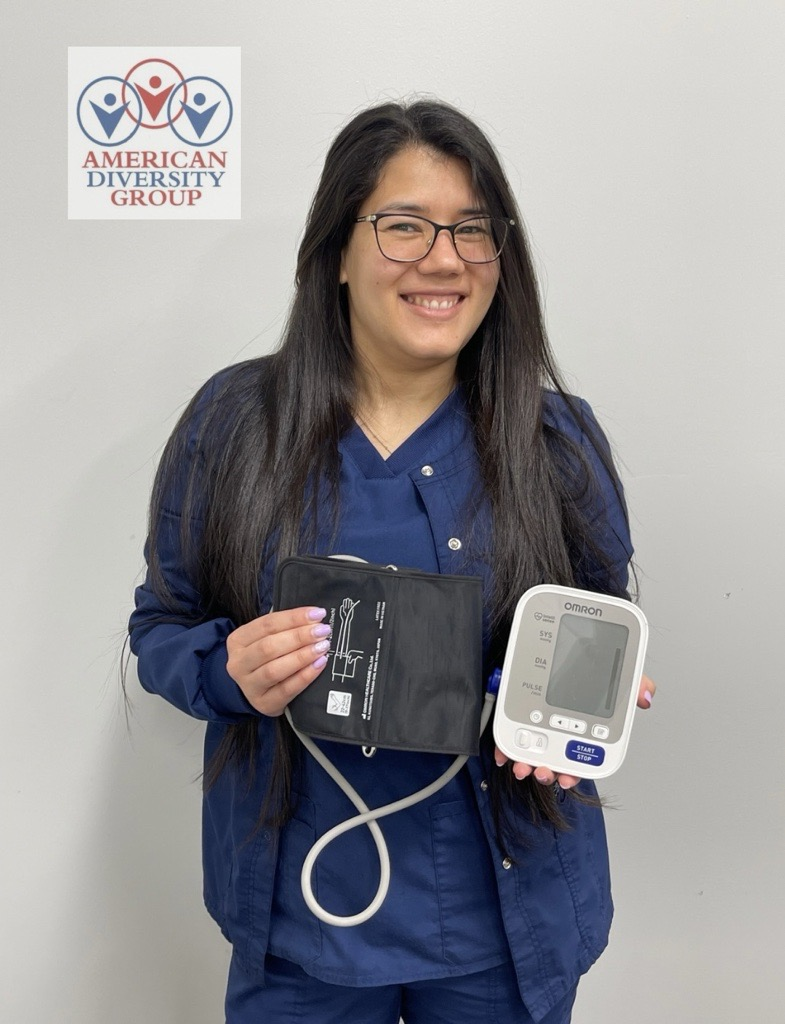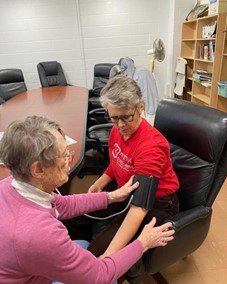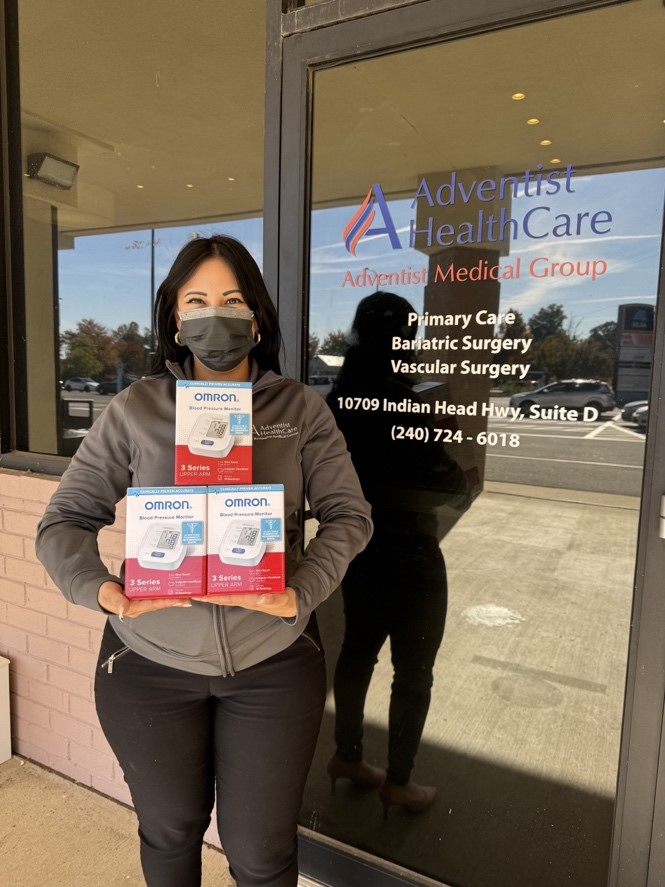

Backed by a one-year grant from Adventist Healthcare, the American Heart Association (AHA) Greater Washington Region recently concluded an initiative to better serve under-resourced residents. Through this grant, the AHA team supported community and health care organizations by providing blood pressure monitors, educational materials and training on how to measure blood pressure accurately to establish a robust self-measured blood pressure monitoring system.
AHA collaborated with various health care organizations and food pantries across Montgomery and Prince George’s Counties, including American Diversity Group Clinic, Care for Your Health, Adventist Health Care-AMG Ft. Washington, Manna Food Center Choice Pantry and Colesville Presbyterian Church. While health care organizations launched blood pressure reduction initiatives programs for their patients with hypertension, food pantries set up blood pressure testing stations on-site to educate clients on blood pressure levels and why monitoring one’s blood pressure is important. Blood pressure station users were connected to primary care services as needed.

Self-measured blood pressure (SMBP) monitoring is an evidence-based strategy that allows individuals to regularly check their blood pressure at home. At-home measuring improves accuracy because many patients experience different blood pressure readings outside of health care organization settings, often due to anxiety or stress associated with medical appointments. This practice empowers patients and helps healthcare providers better diagnose hypertension, leading to improved health outcomes. By taking an active role in monitoring their own blood pressure, patients contribute significantly to their health management.
Since the beginning of the initiative, over 300 patients with hypertension have received blood pressure monitors. Patients’ readings are logged into their electronic medical records to guide treatment strategies. Additionally, the organizations supported by the Adventist Healthcare grant set up free screening stations, where more than 100 patrons were screened, received educational materials and were guided towards appropriate healthcare resources.
AHA GWR also helped health care organizations enhance the standard of care in their practices. All organizations submitted data to the AHA’s Target: BP initiative, which acknowledges a commitment to quality care and improved hypertension control rates.

The AHA’s work with the three clinics led to the adoption of evidence-based activities to improve hypertension management, including device calibration, staff training, skills testing, protocol implementation, and the display of blood pressure infographics. Additionally, the AHA worked with partners to establish and implement policies ensuring the validation of devices and adherence to treatment algorithms. Care team members educated patients on how to take their own blood pressure regularly, paired with periodic checkups.
The participating organizations remain dedicated to this initiative. By continually improving and adapting strategies, they made SMBP an integral part of hypertension management in their communities, ultimately leading to healthier and more informed patients.
To learn more about how to implement this initiative in your community, contact Lucía Zegarra at Lucia.Zegarra@heart.org.